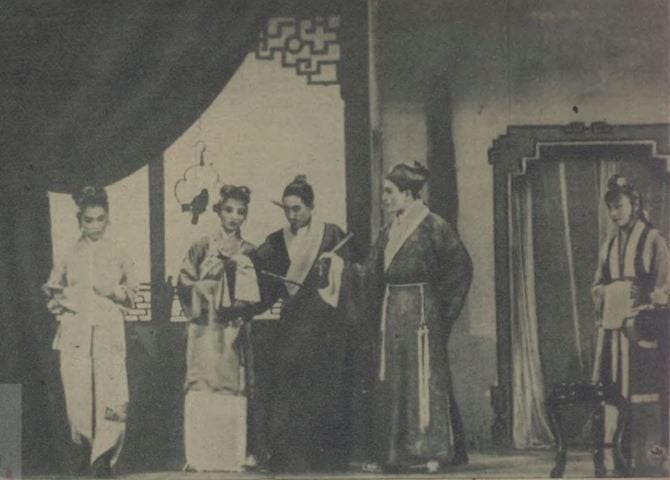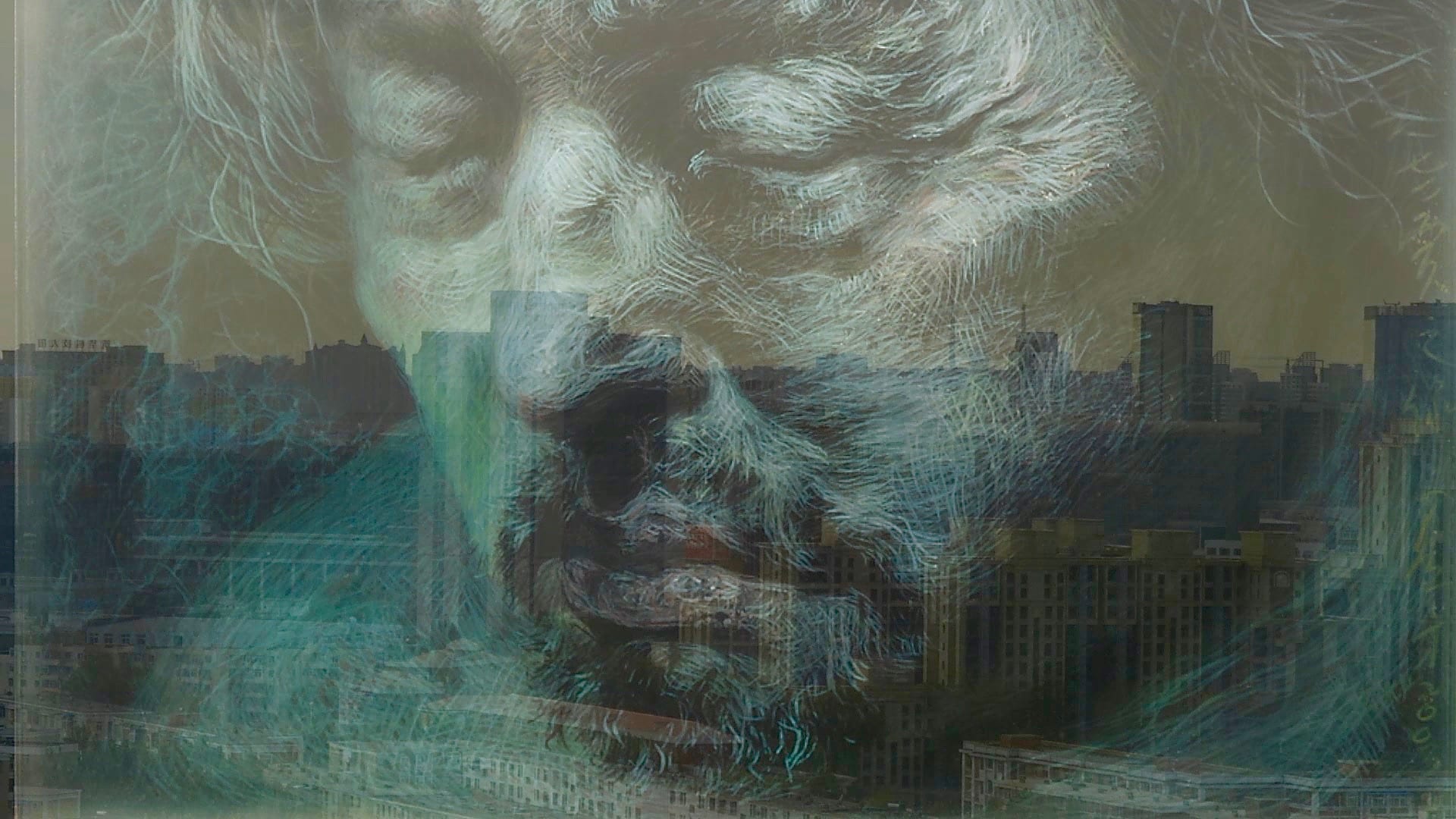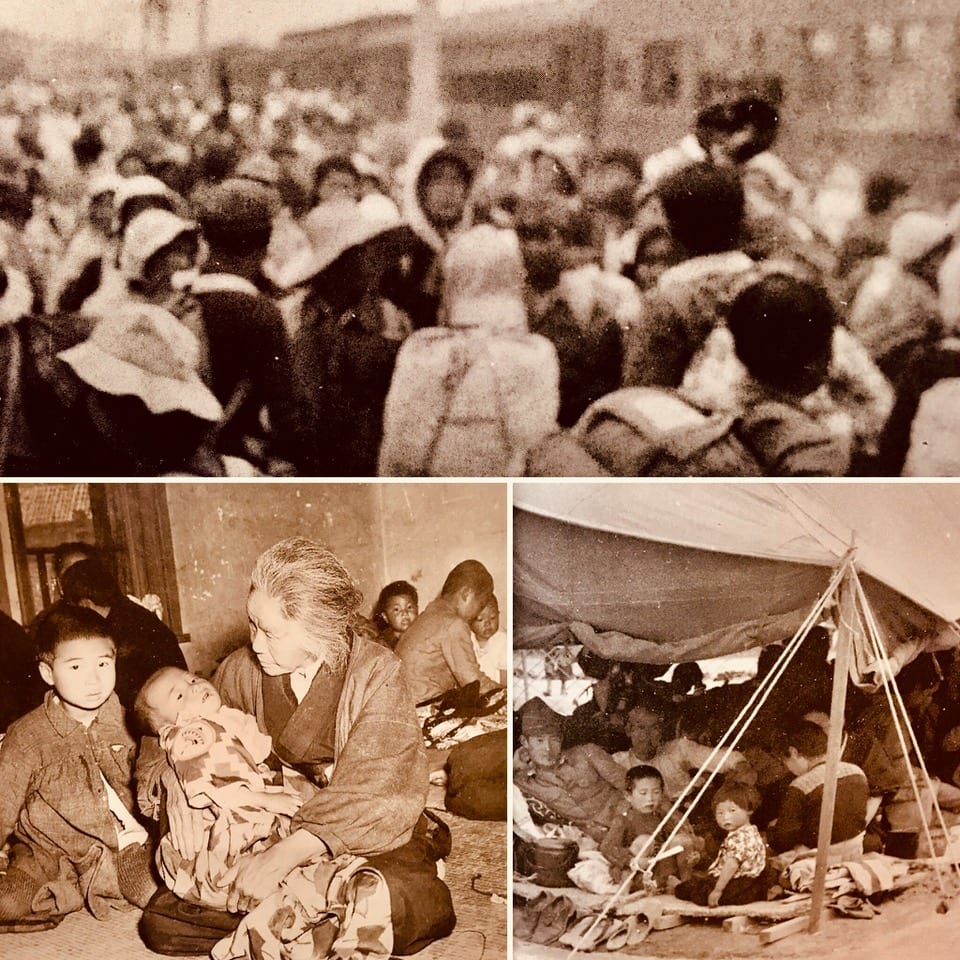Author: Yueling Ji
Sophia Sherry: Ethnography of Loss
Sophia Sherry (PhD Candidate, English)
“Ethnography of Loss: Fumiko Hayashi’s Postwar Women”
Discussant: David Krolikoski (PhD Candidate, EALC)
On January 18th from 3:00pm to 5:00pm the Art and Politics of East Asia workshop will host Sophia Sherry (PhD Candidate, English). She will present “Ethnography of Loss: Fumiko Hayashi’s Postwar Women,” a chapter of her dissertation. Sophia provides the following abstract:
On one standard account, Western literary “modernism” traces its origins to the metropolitan centers of Euro-America in the fin-de-siècle period. In this genealogy, Jules Laforgue’s symbolist experiments in verse inspire T.S. Eliot’s high-modernist formalism, for instance, and Baudelaire’s squalid Paris of the French Second Empire makes possible James Joyce’s reimagining of Dublin in his Ulysses of the 1920s. On this account, too, that signature, modernist modality of “stream of consciousness” is born in William James’s pragmatist philosophy and it finds its perfect exponents in James’s fellow anglophones Virginia Woolf and William Faulkner. Within the modernist (sub)field of English literary scholarship, such geographically constrained myths of influence and derivation appear at once comfortable (familiar) and increasingly short-sighted.
This paper contributes to the growing field of global modernist study by joining the ranks of current scholars engaged in broadening the latitudes of modernist scholarship and inquiry. Transnational imperatives driving new conceptions of cultural modernism encompass, therefore, not just the ethical and political demands of postcolonial literary emancipation but also, I am wagering, merely alternative epistemes and methodologies which are differently inflected, at either the perpetrating or receiving end, by the violent histories of global imperialism. Modern Japan, which Shu-mei Shih has called a member of the “honorary West,” is one case of the latter in point. Meiji Japan is a late-born empire, an instance of an “alternative” and mostly simultaneous, if accelerated, modernity, and yet still, as part of the global East, it lurks as one piece of the West’s projected Other—a modern Orient of reformed despotism whose essential difference serves, in Said’s classic analysis, to consolidate a foreclosed narrative of Western exceptionalism.
Fumiko Hayashi’s “social-realist” modanizumu is the focus of this paper, especially as it manifests at global scale within the Japanese postwar context. Primary texts include Hôrôki (1930) and Ukigumo (1951). Behaviorist in her rendering of diverse human subjects, Hayashi’s “nomadic” modernism (as Seiji Lippit has called it) partakes of a phenomenological logic of revolutionary inversion (tentô), or more simply of a de-naturalizing of naturalized categories of understanding. Such naturalized intellectual and sensuous tendencies would seek to differentiate human subjects from material objects, say, or make history seamless and inevitable when in fact it is always contingent. In this scrambling of epistemological assumptions (tentô), I borrow from Kôjin Karatani’s 1990s deconstruction of the “origins” of Japanese literature. The paper also draws on Sho Konishi’s recent work on Japanese-Russian anarchist modernity and Ann Sherif’s scholarship on Japan in the global Cold War period.
Refreshments will be served at the workshop. We look forward to seeing you there!
Protected: Sophia Sherry paper
2019 Winter Quarter Schedule
Art and Politics of East Asia Workshop (APEA) is excited to announce the Winter 2019 schedule.
Location: Center for East Asian Studies, Room 319, at the Harris School building (1155 E 60th St)
Time: Friday, 3-5PM
Please note special location or time for some events.
1/9 Hye-ryoung Lee (Associate Professor, Academy of East Asian Studies [AEAS] & Dept. of Korean Language and Literature, Sungkyunkwan University)
Presentation Bright Constellations: The Birth and Significance of South Korean Woman’s Literature in the 1980s
Time and location: Wednesday, 1/9, 5-7PM, Regenstein Library, Room 523
1/11 Jin-hee Ryu (Feminist scholar, Ph.D. in East Asian Studies, Sungkyunkwan University) and Hye-ryoung Lee
Presentation: Shifts in Masculinities Since the 1990s and Contemporary Feminist Issues in South Korea
1/18 Sophia Sherry (PhD Candidate, English)
Ethnography of Loss: Fumiko Hayashi’s Postwar Women
Discussant: David Krolikoski (PhD Candidate, EALC)
1/25 Marjorie Burge (Postdoctoral Fellow in Classical Japanese Literature)
Mock Job Talk: Sinographic Writing in Seventh Century Japan: Before and After the Battle of the Paek River
2/15 Jiayi Chen (PhD Student, EALC)
The Ghostly Dicing: Representations of Gambling and Deception in Ming-Qing Short Stories
Discussant: Yiren Zheng (PhD Candidate, EALC)
3/8 Susan Su (PhD Candidate, EALC)
Beyond Censorship: Language and Literary Networks in Tibetan-Language Online Literature Websites of the 2000s
Yuqian Yan: Sorrow for the Fall of the Ming
Yuqian Yan
“Sorrow for the Fall of the Ming:
Wartime Representation of the Late Ming on Stage and Screen”
Friday, November 30, 3-5PM
Location: CEAS 319 (1155 E 60th St)
Discussant: Pao-chen Tang, PhD Candidate (EALC & CMS)

On November 30th from 3:00pm to 5:00pm the Art and Politics of East Asia workshop will host Yuqian Yan (PhD Candidate, EALC & CMS). She will present “Sorrow for the Fall of the Ming: Wartime Representation of the Late Ming on Stage and Screen,” an article in preparation for publication. Yuqian provides the following abstract:
This article examines the effect and affect of historical representations in wartime Chinese theater and cinema, and the interplay between the two media. Focusing on one of the most popular historical play during the war Sorrow for the Fall of the Ming and its screen adaptation, the paper teases out the layered concerns behind the representation of the fall of the Ming and the adaptation strategy of the filmmaker. By analyzing how the fall of the Ming became a common trope, a “chosen trauma” that connects the nation’s past with its historical presence, this paper demonstrates that history mattered not just as a reflective mirror of contemporary situation, but provided an affective space that enchanted and reassured people in the midst of national crisis.
Protected: Yuqian Yan
Protected: Nicholas Lambrecht Paper
Nicholas Lambrecht
This week marks the 100th anniversary of the armistice that ended World War I, an event that brought global attention to the issue of postwar repatriation, and November 6 was the 100th anniversary of the birth of Japanese writer Fujiwara Tei (1918–2016). Fujiwara Tei and Miyao Tomiko (1926–2014) were among the more than one million Japanese civilians who repatriated from Manchuria to Japan at the end of the Second World War, a journey that cost tens of thousands their lives. The repatriation literature (hikiage bungaku) of returnees like Fujiwara and Miyao has struggled to maintain the memory of the hardships of postwar repatriation and pass it down to new generations. This paper examines popular narratives about the large-scale repatriation to Japan that took place in the aftermath of the Second World War. The paper traces the development of tropes about repatriation, shows how depictions of repatriation have reflected the postwar lives and evolving perspectives of their authors, and points to factors that influenced the dissemination and style of Japanese-language repatriation literature.
Chao Wang
Chao Wang
Blind Singing Girls and the Respectability of Livelihood in Early Republican Guangzhou, 1911-1927
Friday, October 19th, 3-5 p.m.
Location: CEAS 319 (1155 E. 60th St.)
Discussant: Weichu Wang (PhD Student, History)
On October 19th from 3:00pm to 5:00pm the Art and Politics of East Asia workshop will host Chao Wang (PhD Candidate, History). He will present Blind Singing Girls and the Respectability of Livelihood in Early Republican Guangzhou, 1911-1927, a chapter of his dissertation. Chao Wang offers the following abstract:
This chapter shows the transformation of self-help among blind singing girls (guji 瞽姬) in early-Republican Guangzhou (1911-1927). These disabled women were sold at an early age by their families to be raised and trained under the tutelage of a foster mother, the elderly former guji who operated private training institutes (tangkou 堂口) in neighborhoods adjacent to business centers. Once they have reached a level of proficiency in singing, young guji will start their career as professional entertainers who were invited to perform in public festivals and family banquets. Republican-era expansion of commercial theatres promoted the social respectability of blind singers by introducing them into bourgeoisie-style teahouses (chalou 茶楼) and securing them with cultured patrons. However, the shifted consuming preference to sighted singers (nüling 女伶) in the 1920s had pushed many blind women out of employment in the teahouse and left them singing on the street. The lower-class guji were forced to engage in sex work for a living. The decline of guji’s respectability, I argue, originated from the negotiation between commercial interest and state regulation, which significantly challenged the moral economy of self-help and pressured a skilled profession to finally degenerate into prostitutes due to survival. Moreover, I demonstrate from the evolution of ableism in the urban entertainment that specific ideas and practices of femininity were constituted by the reconfiguration of a disability.
Screening of Art in Smog with Lydia Chen
Art in Smog
Screening and Conversation with Director Lydia Chen
Friday, October 12th, 3-5 p.m.
Location: Cochrane-Woods Art Center, Room 157
Joint Event with the Visual and Material Perspectives on East Asia Workshop
Introduced by Professor Paola Iovene (East Asian Languages and Civilizations)
 Image taken from Lydia Chen’s Art in Smog ( HD / 76 min. / Color / 2018 / Mandarin with English subtitles )
Image taken from Lydia Chen’s Art in Smog ( HD / 76 min. / Color / 2018 / Mandarin with English subtitles )
On October 12th from 3:00pm to 5:00pm the Art and Politics of East Asia workshop and Visual and Material Perspectives on East Asia Workshop are proud to present a screening of the 2018 documentary feature Art in Smog (76 min. / Mandarin with English subtitles) and conversation with the director Lydia Chen. Art in Smog offers an intimate encounter with four artists and a curator in China, as they pursue their dreams over 25 years of rapid change. Featured are international artists Su Xinping and Xia Xiaowan, painter and antiques connoisseur Mushi, curator Cui Cancan, and painter Chen Hui. The pursuit of art takes them from quiet lives in the 1990s to the extremes of the 2000s to their different paths forward today.
About the Filmmaker:
Lydia Chen has engaged in cultural exchanges between China and the United States since the 1980s. At first she worked for the Foreign Languages Press and studied Chinese painting at the Central Academy of Fine Arts in Beijing. Later she was communications director for the American Chamber of Commerce in China, associate director of the Center for East Asian Studies at Stanford University, and executive director of the Fairbank Center for Chinese Studies at Harvard University. She received her master’s degrees in journalism and Asian studies from the University of California at Berkeley and her B.A. from Sarah Lawrence College.
For more information, please visit the film’s official website.


